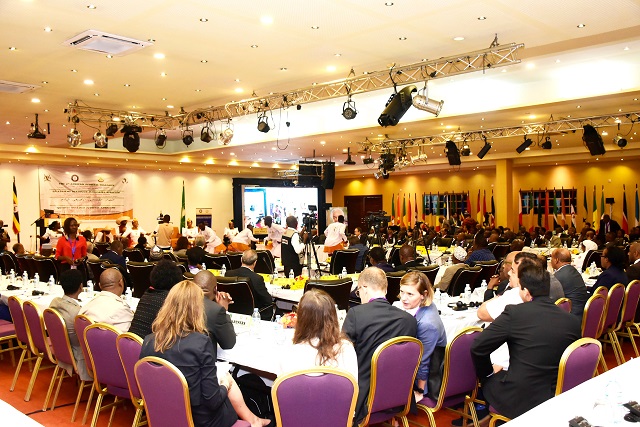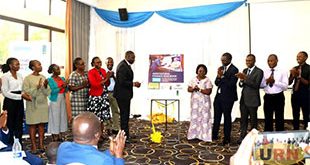
Kampala, Uganda | THE INDEPENDENT | African Courts have come under heavy criticism at the African Judicial Dialogue for posting poor scorecards in resolving controversial Presidential Election petitions on the continent. This was during a plenary discussion on the roles of Judiciary in Africa in managing election petitions at the ongoing fourth African judicial dialogue taking place in Speke Resort Munyonyo, Kampala.
The Courts were faulted for placing heavy evidential burdens over petitioners, making election petitions almost untenable for opposition candidates seeking justice.
Felix Ohiambo Owuor, the Executive Director Electoral Law and Governance Institute of Africa says most Courts over depend on the doctrine of Substantial Effects to overrule electoral irregularities and illegalities on the continent.
The doctrine requires that for an election result to be invalidated, the irregularities and illegalities must be substantial enough to affect the final results.
Owuor said many African Courts are contravening the political rights to good governance as well as the right to vote by insisting on the doctrine of substantial effect.
He cited the 2006 Uganda Presidential Election Petition filed by Dr Kiiza Besigye against the election of incumbent Yoweri Museveni which was never invalidated despite successful proves of substantial irregularities.
Owuor urged the Courts to strike a balance between the burden of proof, standard of proof as well as the civil and criminal elements like bribery and fraud which could have been committed in those elections.
He observed that the will of the people is violated the most in management and declarations of electoral results as noted in most election observation reports across the continent.
Owuor was presenting a paper on the roles of Judiciary in adjudicating Election Petitions and Human Rights in Africa during a panel discussion. Other panellists criticized the Courts for failing to award costs to losing presidential petitioners saying it dents the confidence of voters in running to courts.
Dr Adem Kassie Abebe, the African Union Advisor on governance and democracy in Africa said improper management of Presidential Election Petitions in Africa manifest bigger disputes rather than the electoral disputes themselves.
Dr Adem said elections must be thought of broadly through problem mapping to clearly understand the underlying disputes, their root causes and the nature of their disagreements for holistic solutions focusing beyond the narrow grounds defined by electoral laws.
He said “all election disputes are human rights disputes by default depending on how petitioners formulate their cases” adding that some countries have challenged electoral laws on term limits for violating human rights of candidates in creative ways to defeat human rights rather than advance them.
Ambassador Salah Sidding Hammad, the Director of the Department for Political Affairs of the African Union Commission said failures to think about election petitions and grievances mapping is the sole reason why Courts in Africa deliver their decisions without resolving their controversies.
Ambassador Salah said the African Courts need to focus before maintaining status quo and peace to cementing the will of the people. He urged the courts to overcome the harsh claws of state capture in adjudicating election petitions.
The plenary discussion moderated by Supreme Court Justice Jotham Tumwesigye was attended by other high profile Ugandan judges of the High Court, Justices of Constitutional and Supreme Courts, the Principal Judge Dr. Yorokamu Bamwine and the Chief Justice Bart Katureebe among others as Justice David Maraga, the Chief Justice of Kenya enjoyed glowing tribute for invalidating the 2017 Kenya Presidential Election Results.
Throughout the plenary, the Ugandan Court officials never contributed a single point to the discussion. However, Justice Bart Katureebe was observed listening keenly and taking notes despite the numerous reference to the 2006 and 2016 Presidential Election Petitions.
*****
URN
 The Independent Uganda: You get the Truth we Pay the Price
The Independent Uganda: You get the Truth we Pay the Price



